When lions roar, they communicate important messages to their pride, establish dominance, and bond socially. Roaring also showcases their strength and health, while marking territory boundaries to prevent conflicts. Additionally, lions use roaring to attract potential mates and assert genetic superiority. The iconic sound of a lion's roar serves multiple purposes, reflecting the intricate behaviors of these remarkable creatures. Unravel more about the fascinating reasons behind lion roaring and their unique characteristics to gain a deeper understanding of their world.
Lion Roaring as Communication Tool
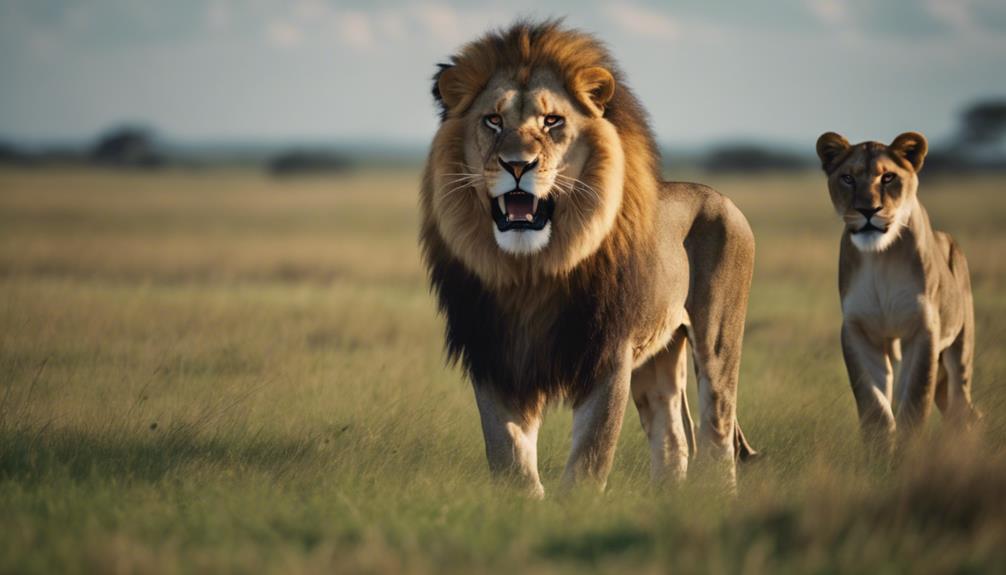
When lions roar, they're utilizing a significant form of communication to convey various messages within their pride and to neighboring lions. This majestic sound serves as an essential tool for lions to maintain social bonds, establish dominance, and coordinate hunting strategies. As a member of a pride, roaring helps lions identify one another, strengthen their unity, and express emotions such as excitement, frustration, or distress.
Furthermore, through roaring, lions can announce their presence in the vast savannah, deterring potential threats and signaling ownership of territory. The intensity and duration of the roar can communicate the lion's size, strength, and overall fitness to potential rivals, thereby reducing the likelihood of physical confrontations.
In addition to intra-pride communication, lions also use roaring to attract potential mates during the breeding season. A powerful roar can demonstrate a lion's vitality and genetic superiority, making them a desirable partner for reproduction. Overall, the act of roaring plays an important role in the intricate social dynamics and survival strategies of these magnificent creatures.
Displaying Health and Strength
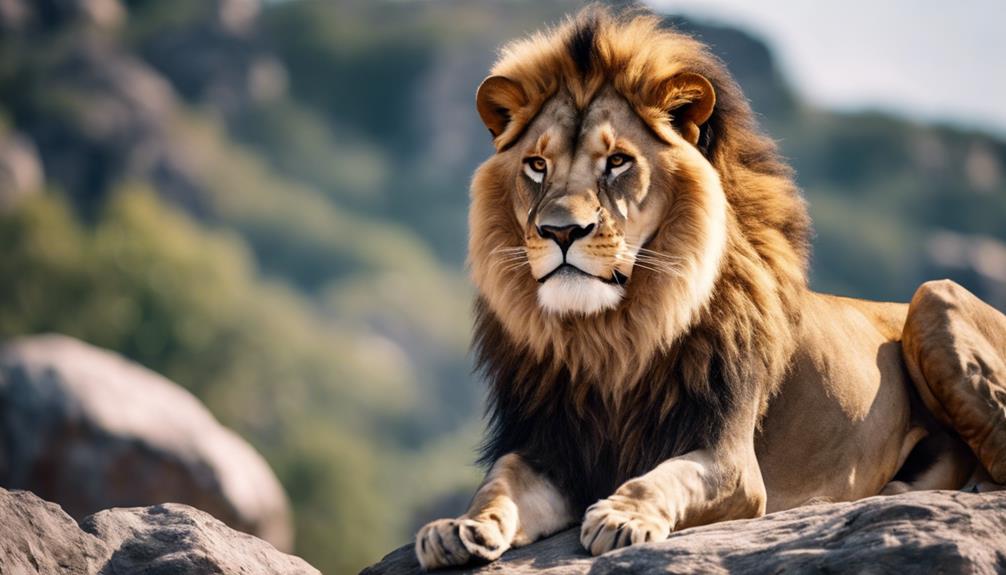
Roaring isn't only a means of communication for lions but also serves as a potent method for displaying their health and strength within the pride and to potential rivals. When lions roar, they're signaling to others about their robustness and dominance.
A strong, resonant roar indicates to both pride members and outsiders that the lion is in prime condition and ready to defend its territory. This display of robust health can deter potential challengers and attract potential mates, as it showcases the lion's ability to protect and provide for the pride.
Territorial Marking Behavior
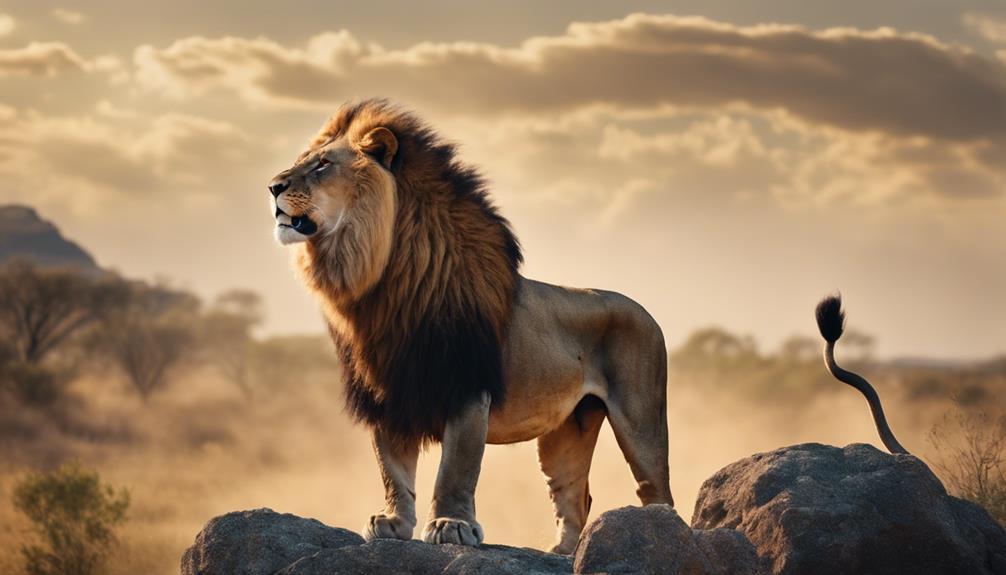
One key aspect of lions' behavior is their territorial marking, an essential means of communication and boundary establishment within their pride. Lions mark their territory by roaring loudly, sending a clear message to other prides about their presence and dominance in the area. This territorial marking behavior helps to prevent conflicts between prides by defining each group's space and reducing the likelihood of territorial trespassing.
Territorial marking also plays a pivotal role in maintaining the social structure within a pride. By establishing clear boundaries, lions can communicate with each other and coordinate their movements effectively. This behavior helps to strengthen the bond between pride members and safeguard their collective safety and well-being.
Furthermore, territorial marking is crucial for securing valuable resources such as food, water, and shelter. By marking their territory, lions can deter rival prides from encroaching on their hunting grounds and ensure a stable supply of prey. Overall, territorial marking behavior is a fundamental aspect of lion behavior that contributes to the cohesion and survival of the pride.
Attracting Mates Through Roaring
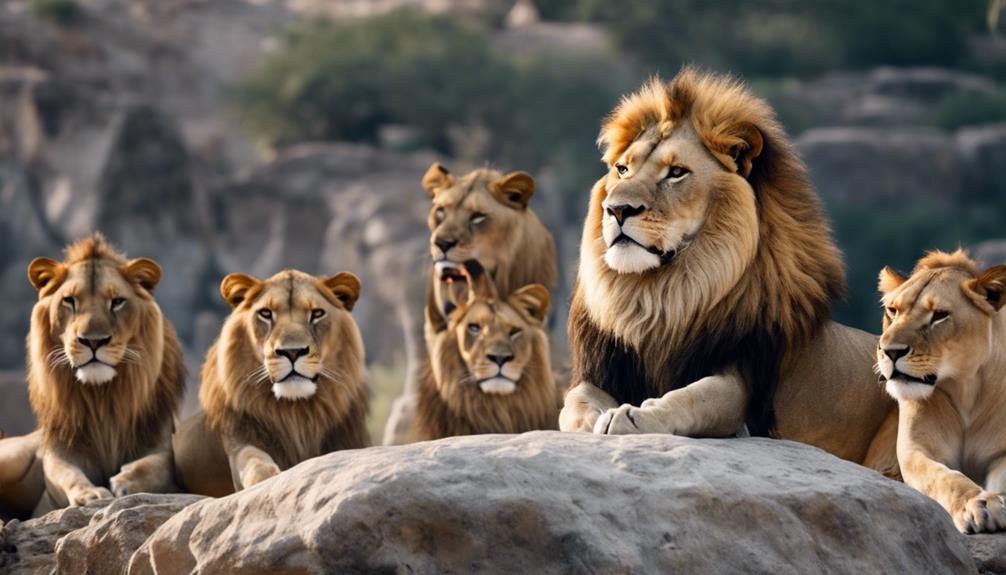
Lions strategically utilize their powerful roars to attract potential mates, enhancing their chances of reproductive success in the wild. The deep, resonant roars serve as a signal of a lion's presence, strength, and overall fitness to potential partners. This impressive display of vocal power not only advertises a lion's readiness to reproduce but also asserts dominance within the pride.
During the mating season, male lions often engage in roaring bouts to announce their availability and to ward off competing males. The intensity and frequency of these roars can influence a female's decision in choosing a mate. A robust and thunderous roar signifies genetic superiority and the ability to protect and provide for the pride.
Unique Roaring Characteristics of Lions
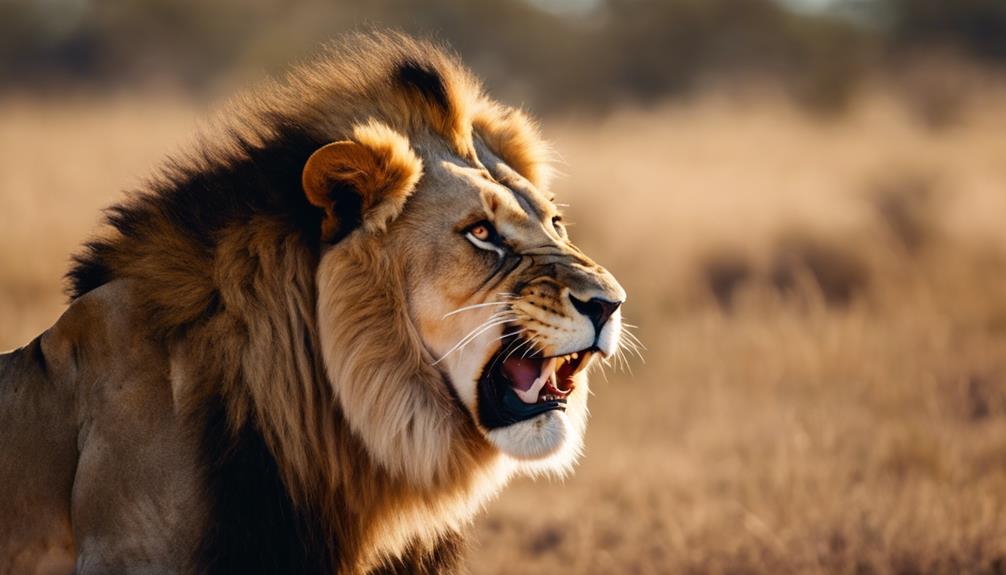
Amplifying their presence in the wild, lions express their dominance and readiness for mating through their distinctive and powerful roars. The unique roaring characteristics of lions are truly significant. Lions are capable of producing roars that can reach up to 114 decibels, making them one of the loudest big cats. This impressive vocal ability is attributed to the unique anatomy of their vocal cords, allowing them to generate such powerful sound waves.
In comparison to other big cats like tigers, lions stand out for their roaring capabilities. Their roars can be almost as loud as a jet plane during take-off, showcasing the strength and dominance of these majestic creatures. The importance of roaring for lions goes beyond mere communication; it plays a vital role in hunting strategies, territorial displays, and attracting potential mates.
Roaring Compared to Other Big Cats
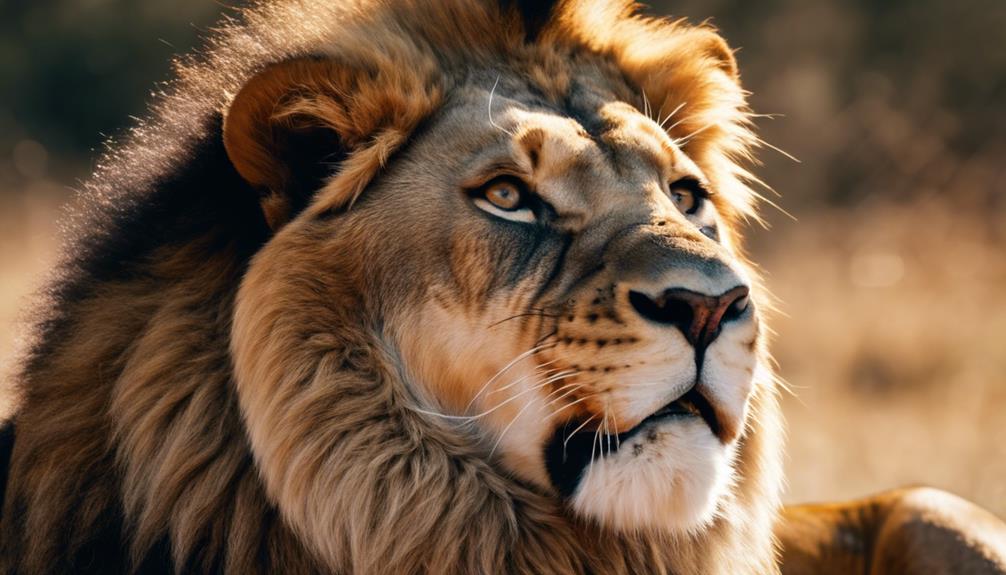
When comparing the roaring abilities of big cats, the distinctive vocal prowess of lions becomes even more pronounced. Lions are known for their powerful roars that can reach up to 114 decibels, making them one of the loudest big cats.
In comparison, tigers, which are also known for their vocalizations, have roars that aren't as loud as lions. While tigers can produce formidable sounds, lions stand out with their ability to project their roar over long distances, sometimes being heard up to 5 miles away.
This unique characteristic of lions' roars sets them apart from other big cats and plays an essential role in their communication, territorial display, and attracting mates. The anatomy of lions' vocal cords contributes to their impressive roaring capability, allowing them to create roars that can rival the noise level of a jet plane at take-off.
Lions' roaring prowess showcases their dominance in the big cat kingdom and highlights the significance of their iconic sound in various aspects of their behavior.
Significance of Roaring in Lion Behavior
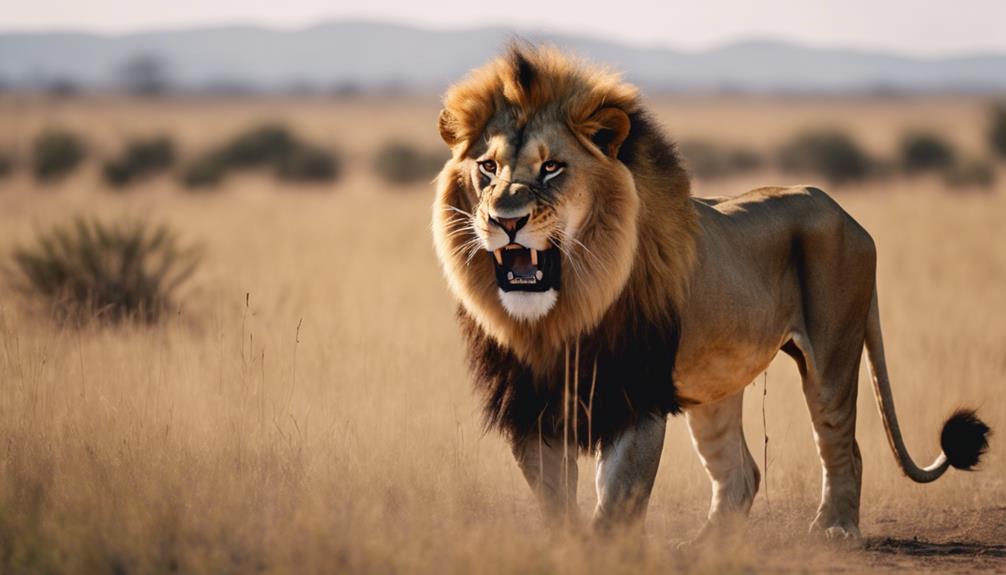
With their powerful roars resonating through the savannah, lions assert their dominance and communicate important information to their pride and rivals alike. The significance of roaring in lion behavior goes beyond just making noise. Lions roar to establish their presence in the pride, showcasing their strength and vigor. This vocal display helps maintain the hierarchy within the group, with dominant males often roaring more frequently to reaffirm their status. Roaring also plays a pivotal role in marking territory, as the sound can travel vast distances, deterring intruders and signaling to other prides the boundaries they shouldn't cross.
Furthermore, the frequency and intensity of roaring can indicate the health and vitality of an individual lion, serving as a form of nonverbal communication within the pride. In the wild, where survival depends on effective communication and clear boundaries, roaring remains a cornerstone of lion behavior, facilitating social cohesion and ensuring the pride's continued success in the challenging African landscape.

Erzsebet Frey (Eli Frey) is an ecologist and online entrepreneur with a Master of Science in Ecology from the University of Belgrade. Originally from Serbia, she has lived in Sri Lanka since 2017. Eli has worked internationally in countries like Oman, Brazil, Germany, and Sri Lanka. In 2018, she expanded into SEO and blogging, completing courses from UC Davis and Edinburgh. Eli has founded multiple websites focused on biology, ecology, environmental science, sustainable and simple living, and outdoor activities. She enjoys creating nature and simple living videos on YouTube and participates in speleology, diving, and hiking.
🌿 Explore the Wild Side!
Discover eBooks, guides, templates and stylish wildlife-themed T-shirts, notebooks, scrunchies, bandanas, and tote bags. Perfect for nature lovers and wildlife enthusiasts!
Visit My Shop →